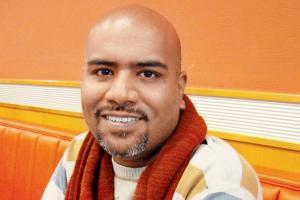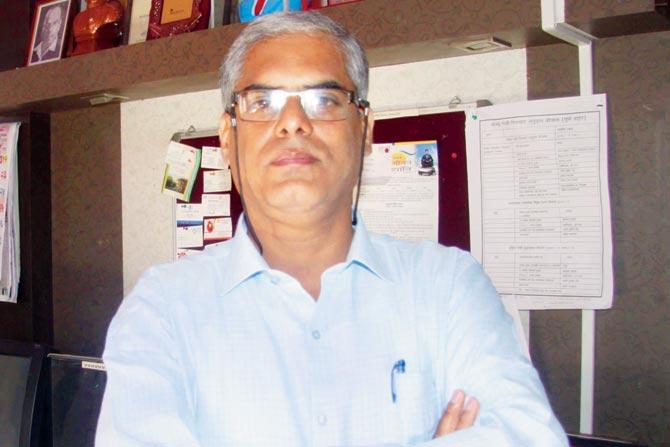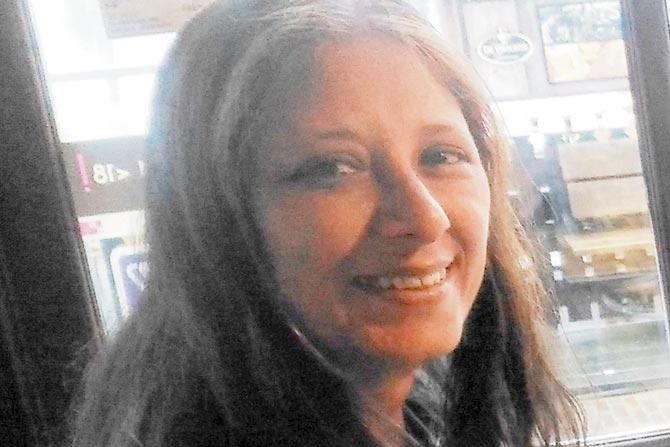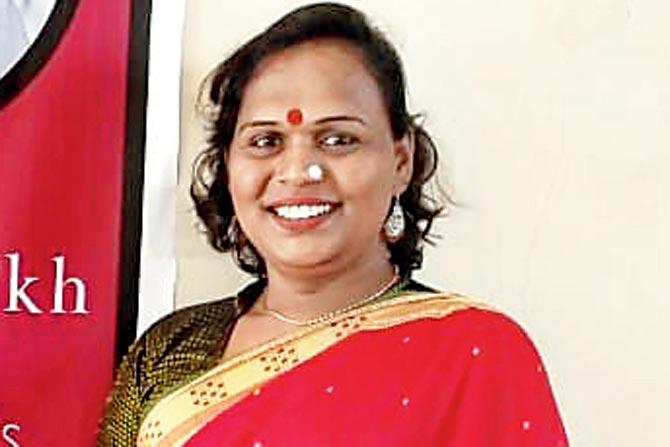Regional writers, who tackle LGBTQi issues, discuss why they have a hard task at hand

Writers Zameer Kamble
Bindumadhav Khire is immensely popular in the LGBTQi circle as a pioneering author, whose first self-published Marathi novel Partner (2005) explored the life of a single, educated, middle class gay man. Inspired by Khire's own life, it marked a watershed moment in queer literature by being the first such account penned by an openly gay man.
What lent it gravitas was that it was written in a regional language. "I deliberately chose Marathi because I realised there was barely any literature on sexual minorities to talk about in the language, apart for Vijay Tendulkar's Mitrachi Goshta (1981)," says the techie-turned-activist. But publishers didn't quite buy into the narrative. In fact, when he approached them with the draft, he was told to take it to the shady shops near railway stations, where it could be sold alongside porn. "It was utter garbage, they said," he recalls. Khire then did the next best thing. He decided to self publish.

Bindumadhav Khire, Pic/Mandar Tannu
Today, he is the author of a string of books on queer issues, including Antarang: Samalingi Mula-Mulincha Atmakath (Anthology of True Stories of Lesbians and Gays) in 2013, Saptaranga (a book on transgenders) in 2013, Intersex - Ek prathamik olakh (A primary introduction to intersex) in 2015.
While Khire decided to tap into his own resources, Marathi playwright Zameer Kamble, who set up Maharashtra's first LGBT theatre group, galvanised support from fellow theatrepersons, when his draft of Off Beat was rejected by the state censor board. The story is about a boy who comes out to his grandmother, who is reluctant to accept him. So, Mahesh convinces her to join him and his group, consisting of homosexual men, transsexuals, transgenders and hijras, to try to understand their issues.

Vaishali Rode
"I wanted no metaphors in the story. There were attempts in the past to say it in a more subtle way, but I wanted the message to be loud and clear," he says. Turns out, the Censor Board's reason for rejection was that "homosexuality doesn't exist in Maharashtra". "It was funny," he laughs. After a year of lobbying, he finally managed to release the play in 2009. Interestingly, all actors were essentially non-actors from the community, who were trained by Kamble.
A literary shoutout
Stories of struggle among queer regional writers to make works see the light of day come as no surprise in a country that only recently decriminalised homosexuality. "But, things are looking up," says Khire. No wonder then that he was able to host the first LGBT Marathi literature festival through his NGO Samapathik Trust that works with issues of advocacy for queer communities last month. The day-long event was peppered with poetry readings and workshops, and participants from Mumbai, Aurangabad and Latur.

Disha Sheikh
That there's more acceptance is something that Mumbai-based journalist Vaishali Rode and author of Mi Hijada… Mi Laxmi!, realised when a publisher warmly welcomed her idea of writing a biography on transgender rights activist Laxmi Narayan Tripathi. "As a journalist, I had been chasing her for an interview since 2000, but she would refuse each time. But in 2009 when the Delhi high court decriminalised homosexuality, the time seemed ripe," says the Vile Parle resident. As luck would have it, Tripathi agreed.
Talking about his decision to go ahead with the book, Arvind Patkar, publisher of Manovikas Prakashan, adds, "I felt it was a human rights story that needed to be told. That she found support in her family, which is rare for a transgender was something that people needed to know."
The book meant delving deep and excavating facts that Laxmi hadn't shared with anybody. "I realised that she was used to keeping things to herself so to get her to share her innermost feelings with me took time," she says. The book was in the writing for three years.
Writing for a cause
For many in the LGBTQi community, writing, while being an antidote to their suffering, is also a medium to reach out to a larger audience. It is the case with both Khire and Kamble, and also applies to aspiring author Disha Sheikh, a transwoman from Shrirampur, Ahmednagar. "Writing has been the only constant in my life.
Initially, I would only write about my feelings, which I couldn't express otherwise," she says. The musings, which were until then restricted to a notebook, moved to Facebook three years ago after her break up with a guy, who couldn't marry her because his family wouldn't accept it. "It happened due to societal pressure, which is why I wanted to write on a platform where people who could see," says Shaikh, who has 3K followers on Facebook. Today, she is a poet, TEDx speaker and a proud transwoman striving towards getting her work published. She now writes on social issues including menstruation, domestic violence and queer issues.
When she started writing a column for a local newspaper, she received both accolades and brickbats. For all the congratulatory messages, there was equal hate mail. "Some women wrote to me saying 'who has given you the right to talk about periods, when you haven't even experienced it'. They also wrote to the editor questioning his decision to rope in a transgender columnist, but he stood his ground," she says. She, too, refused to let it get to her. Today, Sheikh is the agony aunt and literary guide to fledgling Marathi poets.
Khire says he has been reaching out to gays and lesbians in smaller towns through his writing workshops. The sessions, organised through the grants that his non-profit receives, are held free of cost. The age group ranges from 20 to 40 years. The participants are taught how to approach facts and ways to identify and respond to homophobic articles. This is followed by chronicling personal experiences. "In smaller towns and villages, queer people are invisible," he says. To drive home the point, he gives the example of his recent event where, with much difficulty, he managed to find one lesbian writer, who was willing to share her experience. Unfortunately, she vanished on them. "It just goes on to show how much more difficult it is for women to come out," he says.
Catch up on all the latest Mumbai news, crime news, current affairs, and also a complete guide on Mumbai from food to things to do and events across the city here. Also download the new mid-day Android and iOS apps to get latest updates
 Subscribe today by clicking the link and stay updated with the latest news!" Click here!
Subscribe today by clicking the link and stay updated with the latest news!" Click here!







